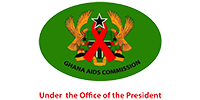Remarks Delivered by Dr. Kyeremeh Atuahene, General Director; GAC
Mr. Chairman,
Health Directors of Ahafo, Western and Western North Regions
Programme Manager, NACP
Missions Director, Ms. Kimberly Rosen
Country Director of CDC, Dr. Tony Ao
Senior Advisor of USAID Care Continuum, Int’l Division, Mr. Mark Kowalski
The Chief of Party and staff of John Snow Inc.,
GAC Team,
Media Partners,
Distinguished Ladies and Gentlemen:
GOOD MORNING
In 1854 when cholera broke out in England, the father of modern epidemiology was unperturbed by the scourge of the outbreak, but being convinced that most problems on earth could be resolved through scientific approach, Dr. John Snow used statistical mapping to discover the source of the contaminants causing the spread of cholera. Little did the world know at that time that Dr. Snow was bequeathing to humanity a blueprint of a legacy of epidemiological analysis and methods of disease control that epidemiologists continue to use up to today.
On 1st October, 2019 at Effia Nkwanta Regional Hospital, I was with then Ambassador Sullivan (of OGAC) and the USAID teams from Washington and Ghana Offices to launch the “HIV and AIDS Joint Strategy to achieve epidemic control in the Western Region”, otherwise known as USAID Strengthening the CARE Continuum Project. At that time, Ghana’s progress towards the 90-90-90 targets was very slow, although scientific advancement in HIV treatment and proven strategies clearly showed that achieving epidemic control was possible. Therefore, the principal objective of this project was to demonstrate that it was and is possible to achieve epidemic control in Ghana.
Today, we are gathered here to witness what has been achieved so far by this project. As you will soon see from the presentations by the regions, significant progress towards national targets has been achieved.
During the period of this project, I have observed with great satisfaction the collaboration among regional health directorates, health facilities, NGO implementing partners, the Ghana AIDS Commission and PEPFAR partners. More importantly, JSI pioneered and championed the implementation of innovative strategies in capacity building and mentorship among health care providers, patient-centered care, back-to-care campaign, U+U, implementation science and services such as HIV self-testing and pre-exposure prophylaxis to prevent HIV transmission. I congratulate the JSI team, regional directors, facility-based and community-based service providers whose efforts and sacrifices have saved so many lives in these three regions. Without you, many more lives would have been lost to AIDS and many more people would have been infected with HIV.
Distinguished Ladies and Gentlemen:
The job is not finished yet because HIV epidemic control remains unachieved in the three project regions and Ghana as a whole. In fact, Ghana is way behind the 2020 targets of 90-90-90. Between 2019 and 2022, Ghana was only able to progress by less than 10 percentage points and at the current rate of progress, Ghana is unlikely to achieve the 90-90-90 targets in 2030 by which time we should rather achieve the global target of 98-98-98 and end AIDS. It is worth noting that many African countries have achieved the 2025 targets of 95-95-95 when Ghana is still struggling to achieve even the 90-90-90 targets. Many factors account for Ghana’s inability to achieve these targets. Compared to the countries that have achieved the 95-95-95 targets, it is quite obvious that they have enjoyed huge combined resources from the Global Fund and PEPFAR over more than twenty years. Ghana and non-PEPFAR countries in West Africa are lagging behind on these targets due to inadequate investments in the proven strategies. The estimated funds available for the national HIV response for the next three years is just 33% of the funds needed for the period. This situation is of much concern to the Government of Nana Addo Danquah Akufo-Addo and it is evaluating all the options available to address this yawning funding gap. The Ghana AIDS Commission is therefore aggressively embarking on resource mobilization. But we may not find all the funds we need. Therefore, all implementing partners have to adopt efficiency measures while government and health partners collaborate to maximize the benefits of integration and synergies in health programmes.
The GAC, on behalf of government, will continue to explore innovative financing options, establish public private partnerships and push further the agenda of integration of programs towards having sustainable HIV response, epidemic control and Universal Health Coverage.
Distinguished Ladies and Gentlemen:
Clothed with the tenacity of Dr. John Snow, I believe that we can also take the pragmatic steps to surmount these daunting challenges for sustainable HIV response. One of the steps is to scale up the best practices and programme innovations that this project has bequeathed to all of us. We also expect that the successor project will do more and achieve more than have been achieved by this project.
I wish to use this opportunity to thank the US Government for the unflinching support Ghana continues to enjoy. In particular, we deeply appreciate the support PEPFAR continues to provide the country.
Thank you and may God bless us all.

